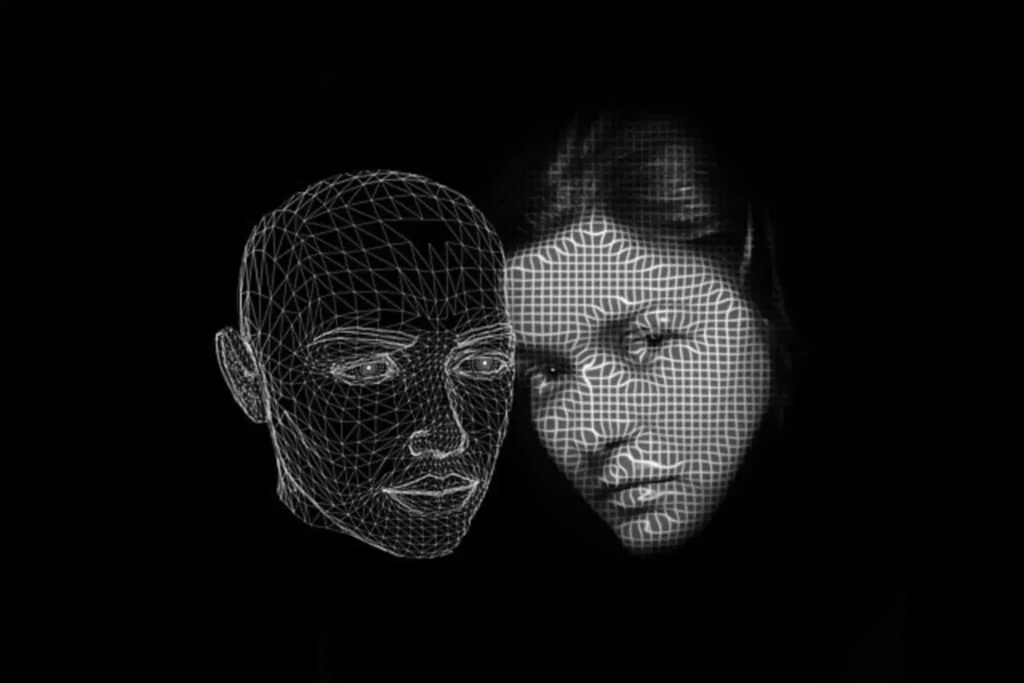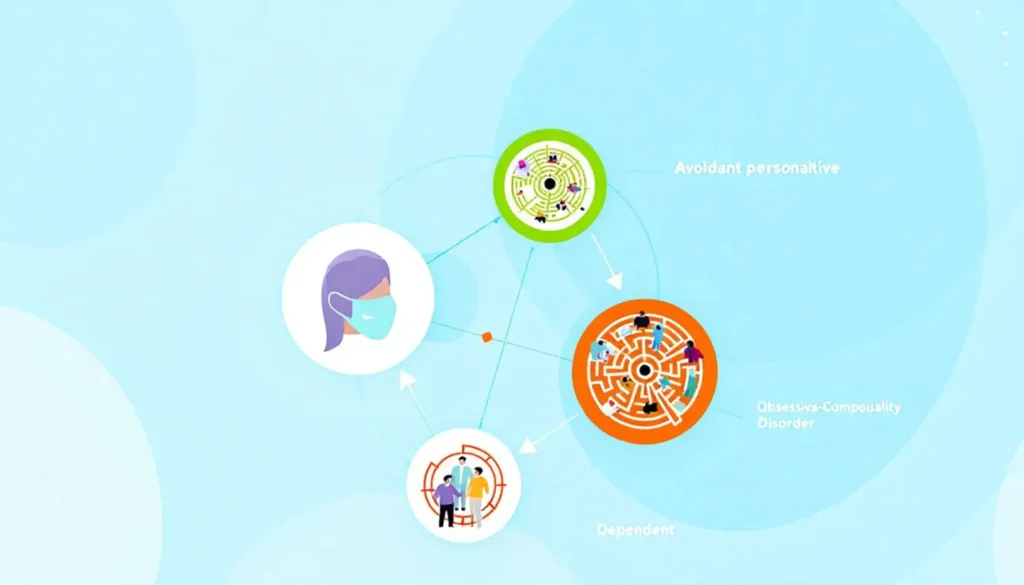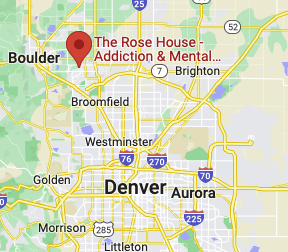Symptoms of Personality Disorders
Home » What We Treat » Mental Health » Symptoms of Personality Disorders
Personality disorders, in the simplest terms, are pervasive patterns of inner experience and behavior that deviate from cultural expectations. For women, these disorders show up in ways that are subtle and deep like emotional intensity, relationship problems, self perception issues and unique ways of coping with stress.
Knowing the symptoms associated with personality disorders like erratic behavior and emotional instability is key when seeking help. This article breaks down the common symptoms into 3 clusters: Cluster A, B and C so you can understand the underlying personality disorder personality traits.
Key Takeaways
Personality disorders affect daily living, relationships and overall well being so awareness and early intervention is key.
There are 3 clusters of personality disorders each with its own set of symptoms: Cluster A (odd behavior), Cluster B (dramatic behavior) and Cluster C (anxious behavior).
Treatment is available via proper diagnosis, talk therapy and collaboration with the right mental health professional.
Personality Disorder Symptoms
Personality disorders are mental health diagnoses that can cause great distress and disrupt daily living. People with personality disorders may find it hard to navigate relationships and often resort to harmful coping mechanisms, making it tough to adapt to different situations. The result is a huge reduction in quality of life for the person concerned.
The common symptoms for personality disorders are:
Unpredictable behavior
Emotional instability
Difficulties in sustaining relationships
Rigidity of thought and action, unable to adapt to change
These symptoms can cause big problems in personal and professional life.
Genetic and early life experiences play a big role in the development of personality disorders. Knowing these factors is key to identifying symptoms early and taking action. Awareness of these signs means better mental health and healthier relationships.
Cluster A Personality Disorders: Symptoms and Examples
There are 3 clusters of personality disorders: A, B and C. Within Cluster A, there are types of personality disorders characterized by odd and unconventional thoughts or behavior that can appear eccentric. Included in this category are Paranoid Personality Disorder, Schizoid Personality Disorder and Schizotypal Personality Disorder – each with its own set of symptoms.
People with a Cluster A personality disorder usually have patterns of distorted thinking, pervasive mistrust of others and social detachment. Knowing the characteristics of each condition under this cluster is key to recognizing and intervening on their symptoms.
Paranoid Personality Disorder
People with Paranoid Personality Disorder have a persistent and pervasive mistrust of others, often suspecting they are being deceived or taken advantage of without any evidence. This constant skepticism can ruin relationships and lead to conflicts and social withdrawal.
Those with Paranoid Personality Disorder tend to have an unjustified fear of the motives and actions of people around them. This intense suspicion and distrust can be a barrier to forming and maintaining healthy relationships, resulting to loneliness and lack of social support network.
Schizoid Personality Disorder
People with Schizoid Personality Disorder are often distant, alone and reserved because of their fear of intimacy. They are disengaged in social interactions and show little emotions.
As a result of their withdrawal they may have difficulty forming close relationships which can lead to feelings of loneliness and isolation.
Schizotypal Personality Disorder
People with Schizotypal Personality Disorder show unusual behavior and thinking, which can be seen in their aloofness, social withdrawal, odd thinking and difficulty in communication. These manifestations can hinder the person to form connections and interact well.
Knowing these symptoms means we can get the right therapy and help. Understanding the struggles of those with Schizotypal Personality Disorder allows us to be more empathetic to what they’re going through and help them.
Cluster B Personality Disorders: Symptoms and Examples
- Borderline Personality Disorder
- Narcissistic Personality Disorder
- Histrionic Personality Disorder
- Antisocial Personality Disorder

Borderline Personality Disorder
People with Borderline Personality Disorder experience dramatic mood swings and changes in their sense of self, characterized by intense emotions, impulsive behavior and constant fear of being abandoned. The symptoms of this can be a big obstacle to maintaining stable relationships and overall well-being.
The long term effects of Borderline Personality Disorder can be seen in a woman who has suicidal thoughts and mood swings. This is why those affected should seek therapy and help.
Narcissistic Personality Disorder
People with Narcissistic Personality Disorder have:
High sense of self-importance
Intense need for admiration
Unreasonable expectations for excessive admiration
Sense of entitlement
Difficulty in recognizing and empathizing with others’ feelings
Knowing the symptoms of Narcissistic Personality Disorder means we can understand relationship dynamics and possible interventions. Knowing these symptoms means we can help those affected by the disorder and help them develop better social skills.
Histrionic Personality Disorder
A constant need for attention and exaggerated emotions is Histrionic Personality Disorder. Attention-seeking, dramatic behavior and superficial display of emotions are the main symptoms of this personality disorder.
Knowing these symptoms is key to diagnosis and treatment. When people with histrionic personality disorder address their deep-seated need for constant attention they can develop more constructive way of expressing themselves and forming stable relationships.
Antisocial Personality Disorder
People with antisocial personality disorder show no regard for others’ rights, they manipulate and disregard others’ emotions. This can be a big obstacle to forming and maintaining positive relationships.
Knowing these symptoms means we can get the right help and therapy. By understanding the underlying issues people with Antisocial Personality Disorder can develop better social skills and stop harming.
Cluster C Personality Disorders: Symptoms and Examples

Personality disorders under Cluster C are characterized by anxious and fearful thinking and behavior. The common thread among these is anxiety and fearfulness. This cluster includes Avoidant Personality Disorder, Dependent Personality Disorder and Obsessive-Compulsive Personality Disorder.
Knowing the dysfunctional anxious thinking or behavior in someone is key to diagnosis within this cluster – Cluster C. Knowing this means we can give the right support and treatment for each personality disorder.
Avoidant Personality Disorder
Characterized by social inhibition, feelings of inadequacy and acute sensitivity to criticism, people with Avoidant Personality Disorder are extremely shy and have a deep fear of being humiliated in social situations.
Dealing with Avoidant Personality Disorder can be tough because the fear of criticism that afflicts these people often makes them avoid seeking help. Constructive ways of managing the symptoms of the disorder is to gradually engage in social interactions, join support groups and use cognitive-behavioral techniques to boost self-esteem.
Dependent Personality Disorder
People with Dependent Personality Disorder have an excessive need to be taken care of by others. They are dependent on others for emotional nourishment and decision making.
This personality disorder can hinder self-reliance and self-confidence big time.
Obsessive Compulsive Personality Disorder
Obsessive-compulsive personality disorder is characterized by preoccupation with orderliness, increased anxiety and difficulty in completing tasks. Symptoms presented by those affected can vary greatly as the disorder comes in different severity and forms.
Unlike those with obsessive-compulsive disorder, people with Obsessive-Compulsive Personality Disorder often don’t have insight into their own patterns of behavior. Knowing these signs means we can give the right support and therapy to help individuals develop better coping mechanisms.
Treating Women with Personality Disorders at the Rose House
If personality disorders remain unaddressed, they can escalate to severe relationship and emotional challenges. Without intervention, these conditions may intensify social withdrawal, mental health complications, dependencies, and other associated disabilities or psychological illnesses.
Therapy in a safe environment, with only women, is the main approach to managing personality disorders at the Rose House. With customized treatment plans for each woman, therapy and behavior management looked at with the patient and mental health professional.
Since there are no medications specifically approved for personality disorders, understanding when to utilize medication to prevent symptoms along with therapeutic interventions and a plan that includes the patient is what we have found to be most effective. Women at The Rose Hose who are in therapy groups and on a path of understanding, say they feel more in control being a part of their treatment process which in turn promotes higher self-esteem and overall improved mental health conditions.
For women enduring considerable turmoil as a result of personality disorders to seek guidance is a huge step. Gaining insight into diagnostic options, methods and treatments empower women to actively manage their mental health condition. A person’s symptoms are not who they are. Learning how to address an emotional response regardless of the specific personality disorder is the foundation for healing one’s self and building close relationships.
How Personality Disorders are Diagnosed
At the Rose House, personality disorders treated by our licensed mental health professionals begin with an assessment of where they are at today, their history and learning about each current and past mental health provider. Personality disorders involve unusual interpersonal relationships – this history is important to understand in order to address how each women wants to change and develop a treatment plan.
A woman is often misdiagnosed, so to ensure that each patient is respected after gathering all information, we explain our findings based upon actual data for a diagnosis from the APA’s (american psychiatric association) diagnostic and statistical manual DSM V. Personality disorders and personality disorder traits are different. A personality disorder requires specific criteria for each cluster and specific diagnosis. Included in our diagnostic process is the personal and family medical history.
When to Get Help
Recognizing the symptoms of a personality disorder can be tricky as people see their own behavior as normal. We need to notice the harmful behaviors and how they affect relationships to know when to get professional help. People with personality disorders for example, tend to rush into new relationships immediately after a previous one because they hate to be alone.
Help for mental health problems including personality disorders is available. Reach out to local mental health professionals or if a higher level of care is needed, The Rose House, a woman only treatment center is a great choice. By noticing these signs, people are taking the first step towards better mental health and better relationships.
Summary
Knowing the symptoms of personality disorders and how it affects the daily life of a person is really helpful to getting the right treatment and support. By knowing the different types of personality disorders in Clusters A, B and C you can understand your own or your loved ones experiences. Professional diagnosis, effective treatments and family support is important to treat personality disorders.
Managing and treating personality disorders and symptoms requires active participation and support from healthcare providers. If you or someone you know has a personality disorder get help now. Remember taking the first step to treatment can lead to a healthier happier life.


